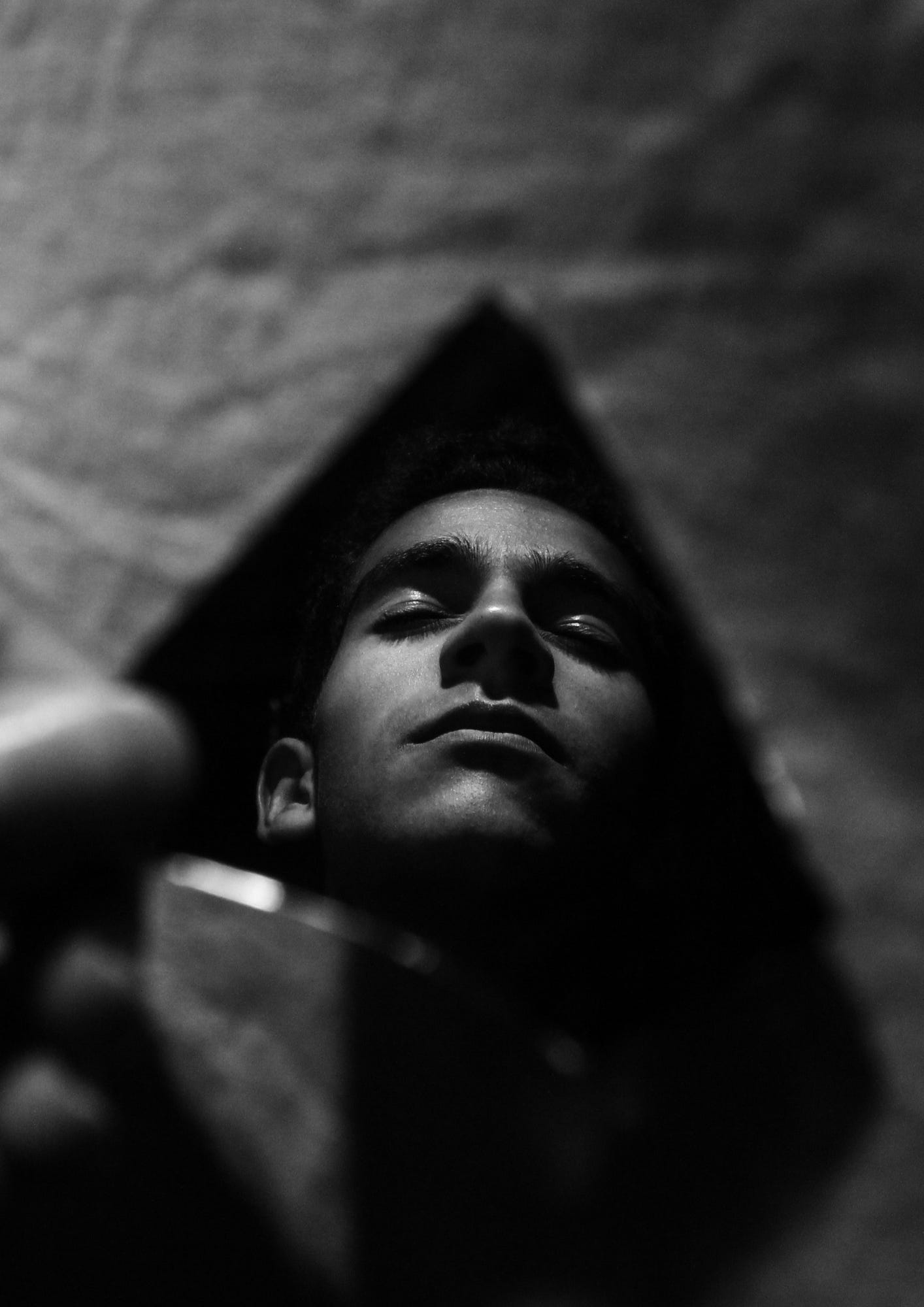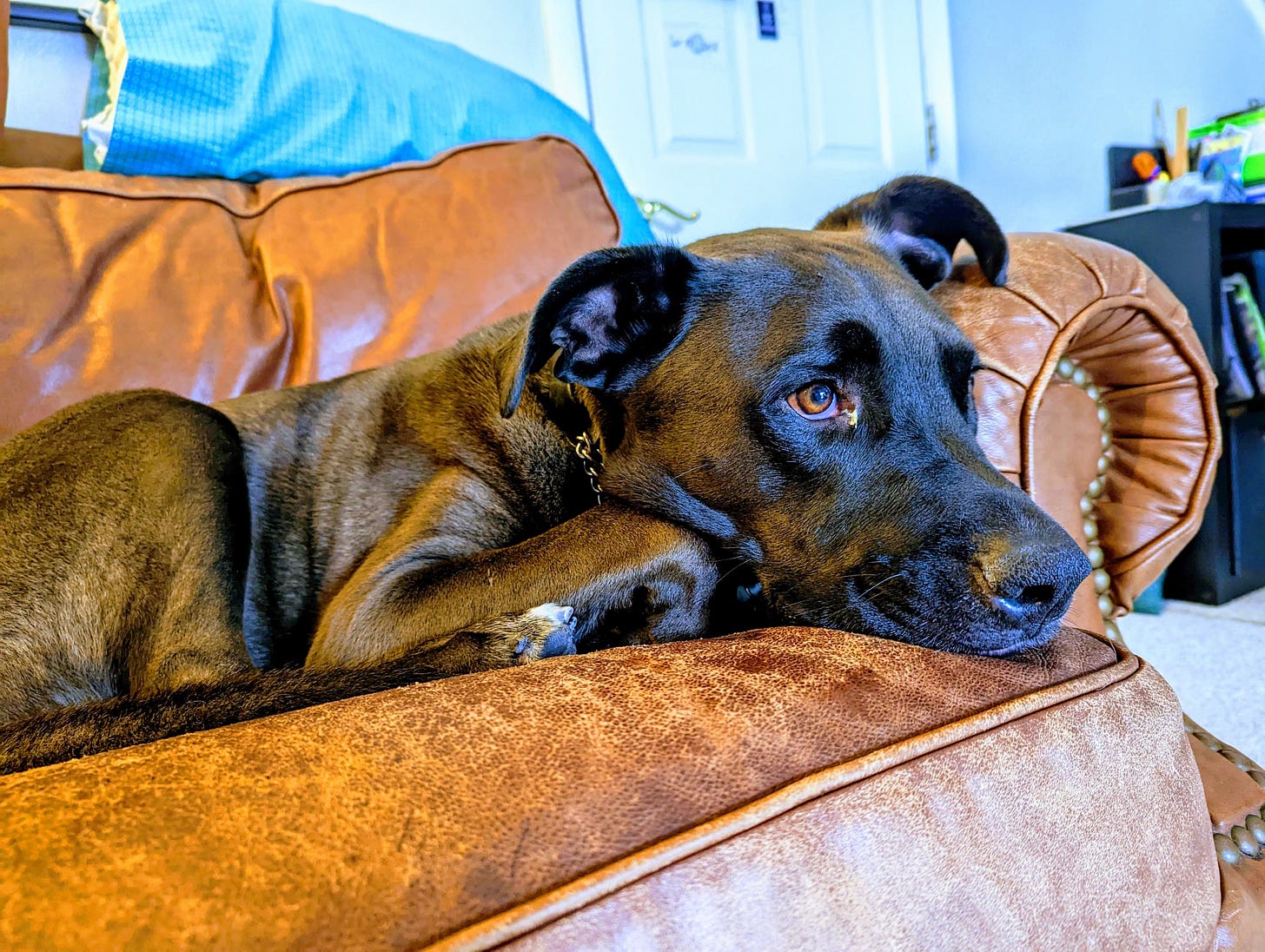Living From the Death of the Experience
How projecting yourself into the future can improve decision-making
Hello & welcome to another edition of Beyond Self Improvement! Last Wednesday, I published The Pursuit of Genuine Joy.
A warm welcome to the ahem, 15 new subscribers to Beyond Self Improvement since Saturday. If you aren’t already, join 620 lovely people by subscribing now.
Summary in Three Sentences
This intriguing article delves into the concept of "Living from the Death of the Experience." By projecting ourselves into the future, we gain a unique perspective on our choices, avoiding potential regrets. This practice, explored through relatable scenarios and psychological insights, empowers us to make more informed decisions aligned with our aspirations and values.
Dear Friends,
A fantastic feature of the human mind is its ability to envision the future. Such time travel can be used to imagine countless scenarios and possibilities.
Sometimes, we instinctively grasp the answer when presented with choices. We may feel sure about a decision. Other times, we’re less confident. But our path appears uncertain in other cases, and we find ourselves indecisive.
In these moments, a tool my friend calls "Living from the death of the experience" can prove invaluable. It involves projecting ourselves into the future, gazing backward at the past, and contemplating what it would feel like to have lived through an experience before making a choice.
Think of it like trying on clothes before purchasing. You don’t know if you want them until you try them on and see how they look and feel. Similarly, this practice allows us to test the waters of the future and determine if it aligns with what we want for our lives.
𑁍
Life continually extends invitations to us, urging us to spend our time and money in this way or that. How we respond to these invitations profoundly shapes the quality of our lives.
Imagine standing in line at the local grocery store, hungry. You spot a tempting box of chocolate-covered sweets and impulsively add it to your cart. Yet, the joy of devouring the chocolates dissipates when you reach home. After the sugar high, regret settles in, and you wonder, Why did I indulge?
Or consider a scenario where it’s early December, and an acquaintance invites you to a holiday party. You say yes because who doesn’t like going to a party? But immediately, you start having regrets. What was I thinking? I hardly even know this guy!
With each passing day, you feel increasing dread. But you said yes, so you feel obligated to go. When you arrive at the party, your worst fears are realized. Everyone is wearing an ugly sweater, the music is terrible, and their idea of fun is talking about the latest sitcoms. What was I thinking?
The friend who created this practice applies it to women. When he was younger and living in San Francisco, he dated many women, including a model and a yoga instructor. But he was immature, codependent, and obsessed with beauty, a bad combination, so these women caused him untold drama and sorrow.
Today, when he sees a pretty woman, he projects himself back into those relationships and thinks Pain! Pain! Pain! In this way, he frees himself from grasping at one of the most potent forces on earth—female beauty. In the same scenario, his Australian brother-in-law thinks, Ah, I figure they’re all a bunch of [expletive] anyway.
𑁍
So why do we make choices we later regret? One reason lies in projection bias. According to the authors of The Upside of Your Dark Side, “Virtually all of our poor happiness choices hinge on a single psychological fact: We are typically in a different state when making choices than when we are when we experience the result of that choice.”
The worst offender is the wanting/liking bias. We may not like what we want. You may wish to own a motorcycle, but you may not like how much space it takes in your garage and how often your partner reminds you of the money you spent on it, yet how infrequently you ride it.
Neuroscience research shows that wanting, or appetite, is associated with one brain region while enjoyment, or liking, is associated with another. In other words, we like the idea of something more than the experience.
Making matters more confusing, the pleasure of buying something comes not from the acquisition but from the cessation of wanting. Respected meditation teacher Joseph Goldstein once noticed himself thumbing through a catalog, looking for something to want so that he could buy the item to relieve the wanting.
In my old neighborhood, leaving unwanted items on the curb for others to use was common practice. I once put out a bag of stuff next to a neighbor’s box of things but then remembered rain was expected. If I leave it outside, it’ll get soaked, nobody will take it, and I’ll have to throw it out. So I hauled the stuff back inside. A week later, my neighbor’s box of stuff was still on the curb, soaked and untouched. It is a simple example, yet it illustrates how imagining a future scenario helps us make better decisions today.
I even use this practice to avoid making investing mistakes. Before buying any stock, I ask myself: Will I be more upset if I buy the stock and it goes down or if I don’t buy it and it goes up? My response helps inform my decision.
𑁍
This practice can be applied to every facet of life, transforming each moment into an opportunity for fulfillment. Every conversation, meal, cup of coffee, workout, movie, walk, glass of water, and hike. Even the seemingly mundane tasks, like buying groceries or cleaning the toilet, can be enriched with the proper perspective.
Intimate relationships, especially marriage, are not immune to complacency. We seem to assume each will last until death do us part. Recognizing that all relationships, even the most enduring, might end with a broken heart can fundamentally alter our approach, infusing every interaction with renewed gratitude and appreciation.
Essentially, "Living from the death of the experience" enables us to navigate life's choices with greater wisdom and clarity. It invites us to peer into the future, making decisions that align with what we’re into and how we want to spend our most precious resource—our limited time on this earth.
Keep choosing,
Ryan
When you’re ready, I can help you transform chronic stress and worry into ongoing calm—making you feel in control in 90 days. Schedule a free, 30-minute discovery call today.
☕️ Or, if you want to grab coffee or tea in Silicon Valley, let me know when you're in the area.




Beautiful post. There's so many times I think I want something and when I am experiencing it, it isn't as glorious as I thought.
Conversely, though, there's plenty of moments where I don't expect to "get" anything and those interactions turn out to be highlights of my day.
Did you always know you were such a talented writer? Dr.🐻 wrote a tweet yesterday about how he used to be a master-debater. It's getting a lot of laughs. 😅☺💙